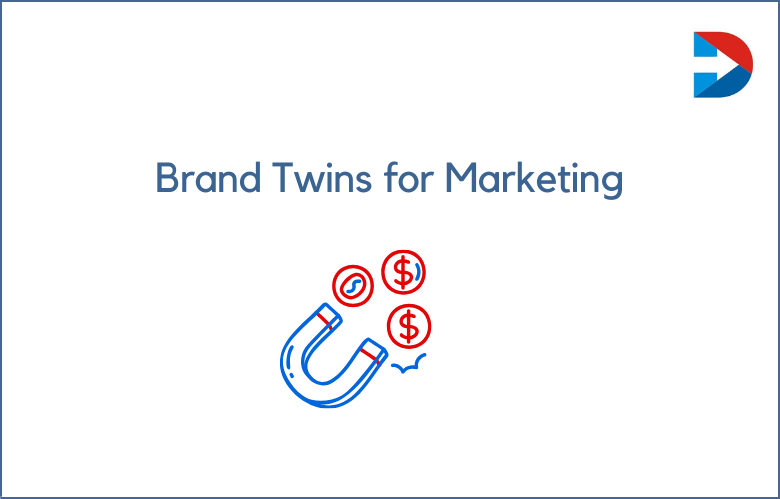
Brand loyalty is the phenomenon of customers showing a preference for and frequenting a particular brand over others that may offer the same product or service. It results from a deep-rooted relationship between the customer and the brand, where the customer trusts the brand’s quality, consistency, and values.
Ultimately, brand loyalty contributes to sustained business success, providing brands with a loyal customer base that can help them weather tough times and grow in the long term. We will explore the concept of brand loyalty, its importance, and how it can be achieved.
Why Does Brand Loyalty Matter?
Brand loyalty is essential for several reasons, and it goes beyond simply increasing sales. Here are some of the critical benefits of having a loyal customer base:
Higher revenue and profits:
Loyal customers are more likely to spend more money, purchase more frequently, and try new products or services from the brand.
This can significantly impact a company’s revenue and profits, as acquiring new customers can be much more expensive than retaining existing ones.
Increased brand awareness and referrals:
Loyal customers are also more likely to share positive experiences with their friends and family through word-of-mouth or social media. This can increase brand awareness and attract new customers without additional marketing costs.
Competitive advantage:
Customers loyal to your brand are less likely to switch to a competitor for similar products or services. This can give your company a competitive advantage, as you can focus less on retaining customers and more on attracting new ones.
How to Measure Brand Loyalty
So how do you measure brand loyalty? There are several ways to do this, but here are some of the most common metrics:
Net Promoter Score (NPS):
This simple survey question measures how likely a customer is to recommend the brand to others on a scale from 0 to 10.
Customers who rate the brand 9 or 10 are classified as “promoters,” while those who score 0 to 6 are “detractors.” The NPS score is obtained by subtracting the percentage of detractors from the percentage of promoters.
Customer lifetime value (CLV):
This is the total amount of money a customer is expected to spend on your brand over their lifetime. Loyal customers usually have a higher CLV because they are more likely to buy from the brand multiple times.
Repeat purchase rate:
This metric measures how often customers return to purchase from the brand. Repeat purchases strongly indicate brand loyalty because customers are willing to return even after having other options.
The Importance of Brand Loyalty.
Brand loyalty is vital as it ensures a steady revenue stream for brands that customers trust. Loyal customers will likely advocate for a brand, promoting it to their friends, family, and colleagues.
This word-of-mouth promotion carries immense power, with people often acting on recommendations from people they know and trust.
Also, loyal customers are more likely to repurchase a brand’s products or services, increasing revenue and reducing the costs of acquiring new customers.
How to Achieve Brand Loyalty.
To achieve brand loyalty, brands must build an emotional connection with their customers.
This entails going beyond product/ service offerings and developing a brand personality that resonates with potential customers. Brands must also prioritize customer service, ensuring customers feel heard, seen, and valued.
This can create strong bonds that go a long way in building brand loyalty. Consistency and reliability are essential – customers must trust that they get the same high-quality product or service with every purchase.
Understanding Brand Loyalty: Why It Matters for Successful Business.
Brand loyalty can often be heard in marketing. It is what business owners and marketers aim to achieve to ensure their business’ long-term success. But what exactly is brand loyalty?
In simple terms, brand loyalty is when a customer repeatedly chooses a particular brand over its competitors.
It results from a strong, positive emotional connection between the brand and its customers. We will discuss the importance of brand loyalty, how it works, and how it can benefit your business.
Types of Brand Loyalty.
The Future of Brand Loyalty
Brand loyalty in the future will depend heavily on factors such as personalization, convenience, and sustainability.
Brands that can personalize their offerings to meet customer preferences while offering the convenience of fast and efficient service will likely see success in building brand loyalty.
With increased emphasis on sustainability, brands that commit to eco-friendliness and ethical business practices may benefit from a better reputation and loyal customer base.
Building Lasting Relationships
When customers are loyal to a brand, it becomes almost effortless to retain them. As a business owner, investing in customer experiences that resonate with your brand is critical to building lasting relationships.
You establish trust and create happy customers through excellent customer service, quality products, and consistent engagement. Moreover, this trust translates into word-of-mouth advertising, one of the most influential and cheapest ways to attract new customers.
Brand loyalty increases profits.
Loyal customers, a.k.a brand advocates, not only bring repeat business but also tend to opt for more expensive products or services from their favorite brand, resulting in increased sales.
Having a steady stream of loyal customers means having a reliable source of revenue that can support your business’s growth and expansion.
Competition is no longer a threat.
In a world where businesses are constantly competing to grab consumers’ attention, having brand loyalty is a game-changer.
Customers loyal to your business are less likely to switch to competitors, even when they offer lower prices or better deals. This makes it easier to plan your business strategy without the fear of losing customers to the competition.
Enhances brand reputation
In many ways, brand loyalty is a powerful marketing tool that keeps giving. Long-term customers who love your brand are more willing to give positive reviews and feedback to others.
This kind of user-generated content serves as social proof that your brand is reputable and worthy of customer trust and loyalty.
People are more likely to trust the experiences of others who have used a product or service they are interested in over a brand advertisement any day.
Emotional connection
The most crucial aspect of brand loyalty is a customer’s emotional connection with a brand. Effective branding and marketing can evoke certain feelings or memories in customers that make them feel good about using your products or services.
This emotional bond is what separates loyal customers from occasional customers. It puts your business on top of their minds when purchasing or seeking similar services.
Conclusion:
In conclusion, brand loyalty is essential for business success and can only be achieved through positive customer relationships built over time.
Brands that prioritize customer service show consistency and foster a strong emotional connection with customers, which can build loyal followers who will promote their products or services.
To achieve brand loyalty, brands must remain adaptable and keep abreast of changing customer preferences and technologies.
Ultimately, the future of brand loyalty lies in personalization, convenience, and sustainability, and brands that can deliver on these factors will stand the best chance of securing a loyal customer base.



